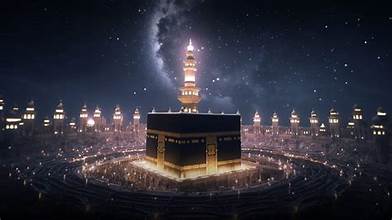
Saudi Arabia has barred more than 269,000 people without official Hajj permits from entering Mecca, just as the annual pilgrimage—the world’s largest religious gathering—begins.
Why This Matters
The Hajj pilgrimage often draws millions of Muslims to Mecca, creating serious overcrowding risks. Past years have seen tragic incidents, including deadly stampedes and heat-related deaths. This year, Saudi authorities enforced stricter controls to improve safety and crowd management.
Key Figures and Regulations
- 1.5 million foreign pilgrims have registered and arrived for Hajj 2025.
- Thousands more local Muslims are also participating.
- A major social media campaign, using the hashtag #NoHajjWithoutPermit, warns violators of fines up to SAR 20,000 (around $5,300).
- Those helping illegal pilgrims may face up to 6 months in prison, fines up to SAR 50,000, vehicle confiscation, deportation, and entry bans, said Interior Ministry spokesperson Colonel Talal bin Shalhoub.
Safety First: No Permit, No Entry
The Ministry of Interior emphasized that anyone trying to enter Mecca without a valid Hajj permit would be turned away. In fact, Director-General of Public Security, Lt. Gen. Mohammed bin Abdullah Al-Bassami, confirmed that over 269,678 residents were sent back for lacking permits.
Saudi Arabia has also banned children under 12 from attending this year’s pilgrimage, further reducing potential safety hazards.
Preventing Another Tragedy
To avoid repeating past disasters, Saudi Arabia has:
- Limited visa issuance, especially to citizens from 14 countries, mainly in the Arab region.
- Invested billions in Hajj infrastructure, including crowd control systems, transport improvements, and surveillance technology.
- Launched public awareness campaigns urging pilgrims to follow rules and deadlines.
Last year, nearly 300,000 unauthorized pilgrims were also turned away.
What’s Happening Now in Hajj 2025
As of today, pilgrims are observing the Day of Arafat, the most critical ritual of Hajj. They are gathered at Mount Arafat, where they will spend the day in prayer and reflection. Muslims worldwide, even those not at Hajj, are also observing a voluntary fast to mark the occasion.
Hajj Is Sacred, But Also Regulated
Hajj is one of the five pillars of Islam, and all Muslims who are physically and financially able are expected to perform it at least once. However, those who cannot attend due to health, financial reasons, or restrictions are exempt in Islam.
While many spend thousands of dollars preparing for the trip, those without permits are urged to respect the laws for everyone’s safety.
Conclusion:
Saudi Arabia’s tightened rules for Hajj 2025 highlight a strong focus on safety, crowd control, and organized worship. Authorities continue to stress that only those with valid permits will be allowed to perform the sacred pilgrimage in Mecca.









